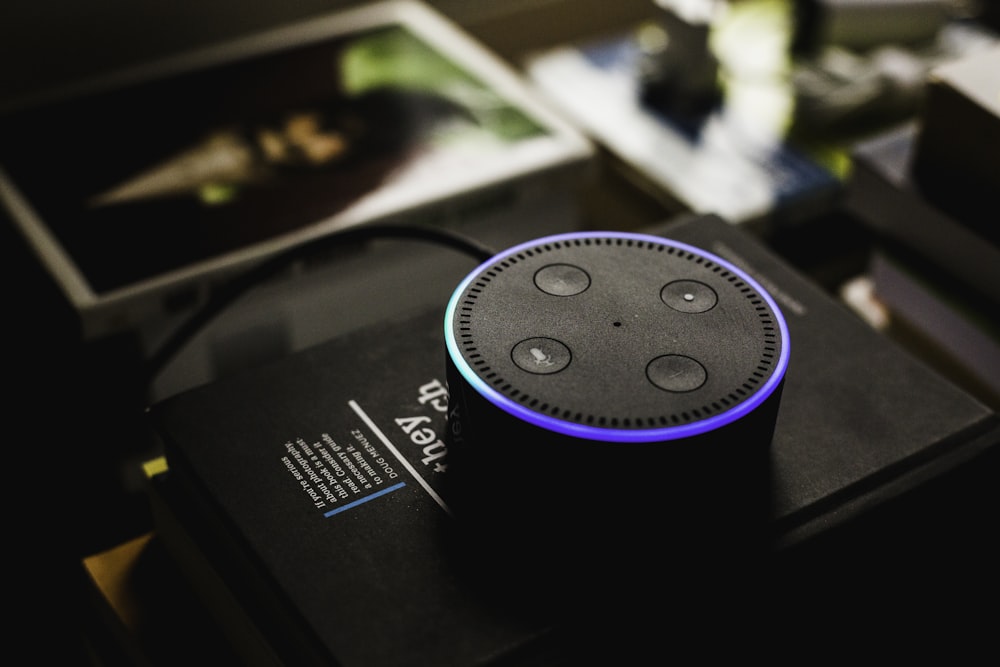In recent years, the concept of the Internet of Things (IoT) has gained significant traction, revolutionizing various aspects of our lives. One area where IoT has made a profound impact is in our homes. IoT home devices, also known as smart home devices, have transformed the way we interact with our living spaces. These devices leverage connectivity, sensors, and automation to enhance comfort, convenience, security, and energy efficiency. In this blog, we will explore the fascinating world of IoT home devices, their benefits, popular applications, and the future of smart homes.
Rise of IoT Home Devices
The proliferation of connected devices and the increasing availability of internet connectivity have paved the way for the rise of IoT home devices. These devices have witnessed significant growth, thanks to advancements in technology, affordability, and the increasing desire for seamless integration between various aspects of our lives. Today, homeowners can transform their houses into intelligent and interconnected ecosystems, offering unprecedented control and automation.
Understanding IoT Home Devices
IoT home devices are physical objects embedded with sensors, software, and connectivity capabilities, allowing them to communicate and interact with each other and the users. These devices collect data, process information, and respond to commands or triggers, enabling a range of automated functions. They are typically controlled through a smartphone or a central hub, offering users the ability to monitor and manage their homes remotely.
Benefits of IoT Home Devices
IoT home devices bring a myriad of benefits to homeowners. They offer convenience by allowing remote control of various functions, such as adjusting temperatures, controlling lighting, or managing appliances. Smart home devices also enhance security through features like video surveillance, smart locks, and door/window sensors. Moreover, these devices promote energy efficiency by optimizing resource usage and enabling automated energy management.
Popular IoT Home Devices
The market for IoT home devices is vast and continually expanding. Some of the most popular categories include smart speakers, thermostats, lighting systems, security cameras, door locks, and kitchen appliances. These devices integrate seamlessly into existing home infrastructures and offer intuitive user interfaces, making them accessible to users of all ages. The market for IoT home devices is vast and continuously expanding, offering a wide range of options to enhance various aspects of our homes. Let's delve into some of the most popular IoT home devices and explore their functionalities:
Smart Speakers: Smart speakers, such as Amazon Echo and Google Home, have become immensely popular. These devices integrate voice assistants like Alexa or Google Assistant, allowing users to control other IoT devices, play music, get weather updates, set reminders, and even answer questions using voice commands. They serve as a central hub for managing other smart home devices and offer hands-free convenience.
Smart Thermostats: Smart thermostats, like the Nest Learning Thermostat or ecobee, revolutionize home temperature control. These devices learn user preferences and adapt to schedules, occupancy patterns, and weather conditions to optimize energy usage while maintaining comfort. Users can control temperature settings remotely through smartphone apps, ensuring a comfortable environment and energy savings.
Lighting Systems: Smart lighting systems, such as Philips Hue or LIFX, allow users to control and automate their home lighting. These systems offer features like dimming, color-changing options, and scheduling. Users can adjust lighting levels, create ambiance, and even sync lights with music or movies for an immersive experience. Some smart lighting systems integrate with voice assistants for convenient control.
Security Cameras: Smart security cameras, like Arlo or Ring, provide homeowners with advanced monitoring and surveillance capabilities. These cameras offer high-resolution video footage, two-way audio communication, and motion detection. Users can access live video feeds, receive alerts, and even communicate with visitors remotely through smartphone apps. Some cameras offer advanced features like facial recognition and night vision for enhanced security.
Smart Door Locks: Smart door locks, such as August or Yale, replace traditional key-based locks with keyless entry systems. Users can lock or unlock doors remotely using smartphone apps or keypads. These locks offer features like temporary access codes for visitors, activity logs, and integration with other smart home devices. Smart door locks enhance convenience, security, and eliminate the need for physical keys.
Connected Appliances: IoT has transformed traditional household appliances into smart devices. Smart refrigerators, like Samsung Family Hub, offer features such as inventory management, recipe suggestions, and syncing with shopping lists. Smart washing machines, like LG ThinQ, can be controlled remotely, provide cycle notifications, and offer energy-saving options. Connected ovens, coffee makers, and even vacuum cleaners have also entered the realm of IoT home devices.
Smart Plugs and Outlets: Smart plugs and outlets, such as TP-Link Kasa or Wemo, add IoT capabilities to existing devices and appliances. These devices allow users to remotely control power supply, set schedules, and monitor energy usage. They are particularly useful for turning regular devices into smart ones without the need for extensive rewiring or replacements.
Home Security Systems: Comprehensive home security systems, like SimpliSafe or ADT Pulse, integrate various IoT devices to provide robust protection. These systems include elements such as door/window sensors, motion detectors, security cameras, smoke and carbon monoxide detectors, and a central control hub. Users can monitor and control the system remotely, receive notifications, and even integrate professional monitoring services for added security.
Smart Irrigation Systems: Smart irrigation systems, like Rachio or RainMachine, offer intelligent water management for lawns and gardens. These systems analyze weather data, soil moisture levels, and plant types to optimize watering schedules. Users can control irrigation remotely, set custom zones, and conserve water by eliminating unnecessary watering.
Voice-Controlled Devices: Apart from smart speakers, various IoT devices now feature voice control capabilities. Smart TVs, streaming devices, home entertainment systems, and even kitchen appliances like microwaves or ovens can be operated using voice commands. Integration with voice assistants enables hands-free control and enhances convenience.
These are just a few examples of popular IoT devices for devices available in the market. The options continue to expand, allowing homeowners to create personalized and interconnected smart home ecosystems that cater to their unique needs and preferences.
Enhancing Comfort and Convenience
One of the primary advantages of IoT home devices is the ability to enhance comfort and convenience. Smart thermostats can learn user preferences and adjust temperatures automatically, ensuring optimal comfort while reducing energy consumption. Voice-controlled smart speakers allow users to play music, get weather updates, set reminders, and control other connected devices with simple voice commands. Automated lighting systems can create ambiance and adapt to user preferences, saving energy and providing convenience.
Improving Home Security
IoT home devices have significantly improved home security by providing advanced monitoring and control capabilities. Smart security cameras offer high-resolution video footage, remote monitoring, and intelligent motion detection, enabling users to keep an eye on their homes from anywhere. Smart locks provide convenient and secure access control, allowing homeowners to lock or unlock doors remotely or provide temporary access to visitors.
Energy Efficiency and Sustainability
Energy efficiency and sustainability are crucial considerations in today's world. IoT home devices play a vital role in optimizing energy usage and promoting eco-friendly practices. Smart thermostats regulate temperatures based on occupancy and user preferences, reducing energy waste. Energy monitoring systems provide real-time insights into energy consumption, empowering users to make informed decisions about resource usage. Connected appliances, such as smart refrigerators and washing machines, optimize operation schedules to minimize energy and water consumption.
Overcoming Challenges and Concerns
While IoT home devices offer numerous benefits, they also come with challenges and concerns. Security and privacy are significant considerations, as interconnected devices increase the potential for data breaches or unauthorized access. Interoperability and compatibility between different devices and platforms can also be a challenge, requiring careful selection and integration. Additionally, the reliance on internet connectivity means that network outages or connectivity issues can temporarily disrupt the functionality of IoT devices.
The Future of IoT Home Devices
The future of IoT home devices is promising. Advancements in artificial intelligence, machine learning, and data analytics will further enhance the capabilities of smart home systems. Increased interoperability and standardization will allow for seamless integration between devices from different manufacturers. The integration of IoT with other emerging technologies, such as 5G, edge computing, and blockchain, will unlock new possibilities and applications for smart homes.
Conclusion
In conclusion, IoT home devices have revolutionized the way we interact with our homes, offering comfort, convenience, security, and energy efficiency. The widespread adoption of smart home devices has transformed houses into interconnected ecosystems, providing users with unprecedented control and automation. As technology continues to evolve, we can expect even more advanced and integrated solutions that make our homes smarter and more sustainable.
As an expert in software development and IoT solutions, CronJ brings valuable expertise to the world of IoT home devices. With their experience in developing innovative software applications, CronJ understands the intricacies of building robust and secure IoT systems. They are well-versed in the latest advancements and trends in smart home technologies, making them a reliable source of expertise in the field. CronJ's contributions have made a significant impact on the adoption and evolution of IoT home devices.




